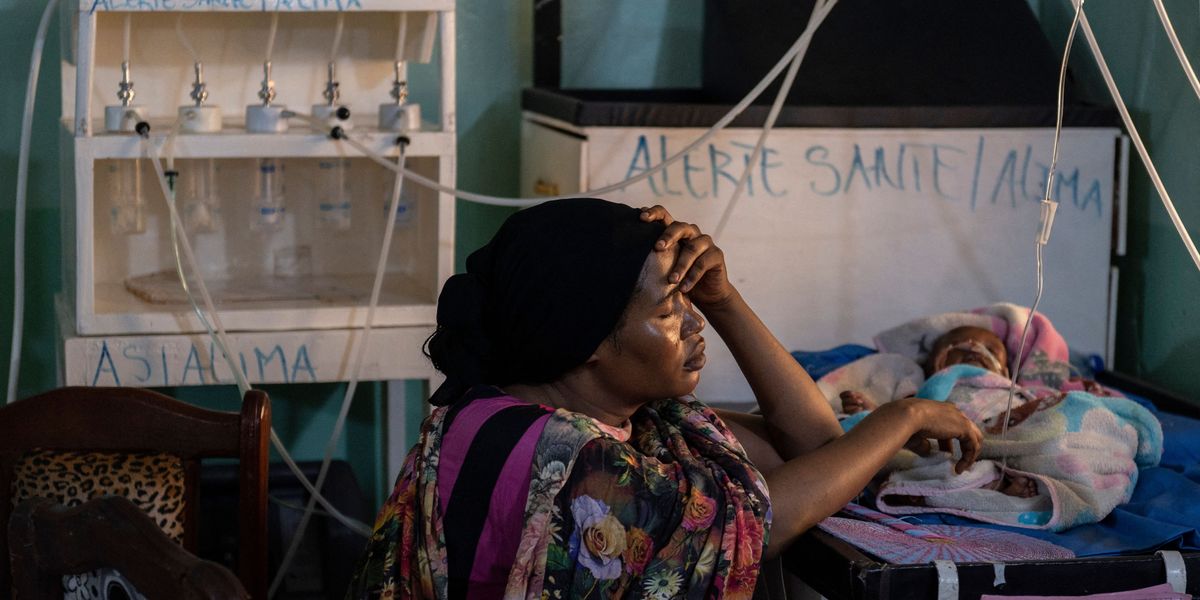
United Nations humanitarian officials on Tuesday renewed warnings that as many as 48 million people across West and Central Africa will likely go hungry in the coming months due to severe food insecurity driven by armed conflict, Covid-19, inflation, and the worsening climate emergency.
Officials from four U.N. agencies—the World Food Progam (WFP), Food and Agriculture Organization (FAO), Office for the Coordination of Humanitarian Affairs, and United Nations Children's Fund (UNICEF)—this week amplified calls for help, underscoring a December 2022 analysis warning that the number of hungry people in West and Central Africa would reach a "record high" in 2023 "if urgent and long-lasting solutions to address this crisis" aren't implemented soon.
"The spiraling food security and nutrition situation in Western Africa is just heartbreaking," WFP regional director Chris Nikoi said in a statement. "There is a crucial need for massive investmentin strengthening the capacities of communities and individuals to withstand shocks whileprioritizing local and long-term solutions to food production, transformation, and access for vulnerable groups."
For the first time in the Sahel—a semi-arid strip running from Senegal and southern Mauritania on the Atlantic coast to Sudan and Eritrea on the Red Sea—45,000 people are at risk of experiencing catastrophic levels of hunger, or one step away from famine.
Most of the affected people are in Mali and Burkina Faso, which has replaced Mali as the epicenter of the ongoing fight against militant Islamist groups including the al-Qaeda-affiliated Jama'at Nusrat al-Islam wal-Muslimin. French, U.S., and mostly private Russian forces, as well as the militaries of some African nations, have intervened in the war to support regional government forces.
In the wider region, lengthy droughts, heatwaves, floods, and other extreme weather have negatively impacted water supplies, crops, livestock, and agricultural production in a region whose people overwhelmingly live off the land.
Nikoi toldAxios that "if you go deeper, climate is a large contributor to why these things have now reached the level they have reached."
As in much of the world, food prices have soared in Africa following Russia's invasion of Ukraine. The war has driven up the cost of fertilizer and fuel, while trade restrictions have exacerbated shortages across the continent.
"The situation is worrying," Ann Defraye, a regional nutrition specialist for UNICEF in West and Central Africa, toldThe Associated Press. "Last year, we saw a large increase—31%—in the number of children admitted to health facilities with severe wasting across the Sahel."
"In many areas, it is getting much more difficult for families to find nutritious food to eat, especially where we have communities under blockade," she added.
According to Bloomberg:
Burkina Faso has halted grain exports to Niger, Nigeria has stopped rice shipments to Benin, and Ivory Coast has halted exports of plantains to Burkina Faso, according to data collected by the WFP...The town of Menaka in eastern Mali and Djibo in northern Burkina Faso are among 30 localities identified by the WFP as areas where food transport has been blocked because of insecurity.
"We see areas that are completely blocked," Alexandre Lecuziat, the WFP's senior emergency preparedness and response adviser, said at a press conference in Dakar.
Robert Guei, FAO's sub-regional coordinator for West Africa, called the food security situation in the region "unacceptable."
"This trend will probably continue to worsen the food and nutrition situation and therefore we mustaddress the root causes of this crisisin a concerted manner and immediately," he said. "It is time for action to boost agricultural production to achieve food sovereignty in our region."
Much of Africa beyond the Sahel is also facing a historic food crisis. According to the Red Cross, 146 million Africans are going hungry.
This content originally appeared on Common Dreams and was authored by Brett Wilkins.
Brett Wilkins | Radio Free (2023-04-19T15:13:03+00:00) Nearly 50 Million in West and Central Africa Facing Hunger, Partly Due to ‘Climate Shocks’. Retrieved from https://www.radiofree.org/2023/04/19/nearly-50-million-in-west-and-central-africa-facing-hunger-partly-due-to-climate-shocks/
Please log in to upload a file.
There are no updates yet.
Click the Upload button above to add an update.